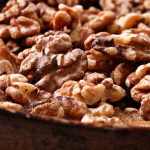Prep: 25 mins
Cook: 10 mins
Resting Time: 8 mins
Total: 43 mins
Servings: 4 servings
Yield: 2 steaks
Whether you’re working with a rib-eye, New York strip, or any other cut of your choice, there’s truly no better way to cook a steak a home than with a cast-iron pan. The sizzling hot pan helps you get a beautiful golden-brown sear, while the technique of finishing the steaks in the oven helps prevent overcooking.
A cast-iron pan may not give you the same picture-perfect marks or smoky flavor as the grill, but many prefer pan-seared steaks because they have better, more uniform browning—and more browning equals more flavor. Once you learn a few tricks, you can create a restaurant-quality steak dinner in just a few minutes at home.
Why Cast Iron Is the Best Pan for Steak
A cast iron pan is an invaluable tool in any kitchen, and it makes cooking steak quick and simple. Cast iron heats evenly, can withstand high temperatures, and retains heat well, all of which help create a perfect, golden sear on your steak.
As a bonus, the fat rendered from the steak will help keep your skillet beautifully seasoned!
Ways to Season Your Steak
In terms of seasonings, salt and pepper are really all you need because they enhance the meat’s natural flavors. Other seasonings, such as spices or dried herbs, tend to burn when the steak is seared, so we recommend keeping it simple. You can always get creative by topping the cooked steak with softened herb butter.
Helpful Tips for Cooking Steak on Cast Iron
Before you begin, set the steaks out for at least 20 minutes so they reach room temperature. Get the pan sizzling hot, and preheat the oven. You'll finish steak in the oven, reaching your ideal doneness without burning the outside of the steak.
Even if your cast iron pan is perfectly seasoned, you do want to use some oil. The reason for this is that while the surface of the pan may appear very smooth, it is full of pockmarks and divots on the microscopic level. The oil fills in those divots and helps transfer heat evenly from the pan to the food. Opt for a neutral-tasting oil with a high smoke point to avoid a burnt taste); extra-virgin olive oil and butter cannot withstand the high temperatures required.
During cooking, flipping the steaks more than once is not necessary, but when you're first learning how to cook a steak, you can flip it every minute or so to ensure you're getting a good, even sear.
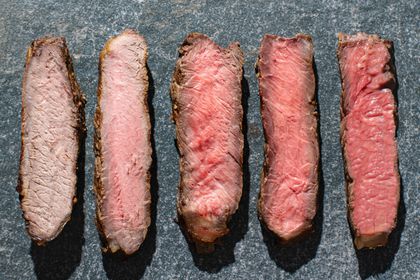
How Long to Cook Steak
The cooking time will depend on how well-done you like your steak, and a thicker steak will require a longer cooking time. For a 1-inch rib-eye steak cooked over medium-high heat, this will be about 3 to 5 minutes per side. But it's better to judge doneness by temperature, not time, for the best results.
The internal temperature of the steak should be:
- 110 F for rare
- 120 F for medium-rare
- 130 F for medium
- 140 F for medium-well
- 150 F for well-done
Keep in mind that a steak's internal temperature will rise by about five degrees after cooking as it rests.
What to Serve With Cast Iron Steak
The side dish possibilities are truly endless with steak. Serve your seared chops with classic steakhouse sides like creamed spinach, sautéed mushrooms, or truffled French fries, or go for more creative options such as a Brussels sprouts salad, cauliflower mac and cheese, or pesto gnocchi.
“This recipe is the perfect instruction for cooking a bone-in ribeye steak. It doesn’t need anything but salt, pepper, and a touch of butter for a flavorful and juicy result! The key here is to let the steak rest for at least five minutes before bringing it to the table to help the juices redistribute.” —Diana Chistruga
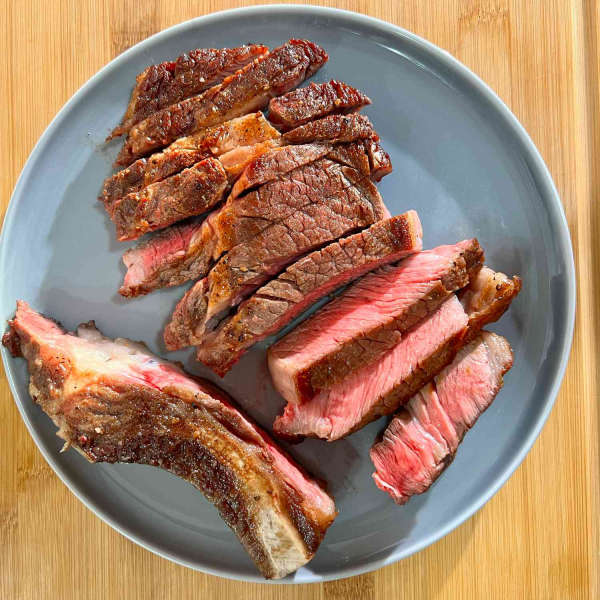
A Note From Our Recipe Tester
Ingredients
-
Two (3/4-pound) bone-in rib-eye steaks, at least 1-inch thick
-
1 1/4 teaspoons Diamond Crystal kosher salt
-
1/2 teaspoon freshly ground black pepper, or more to taste
-
1 tablespoon neutral oil, such as canola or avocado oil
-
2 tablespoons unsalted butter, optional
Steps to Make It
-
Gather the ingredients.
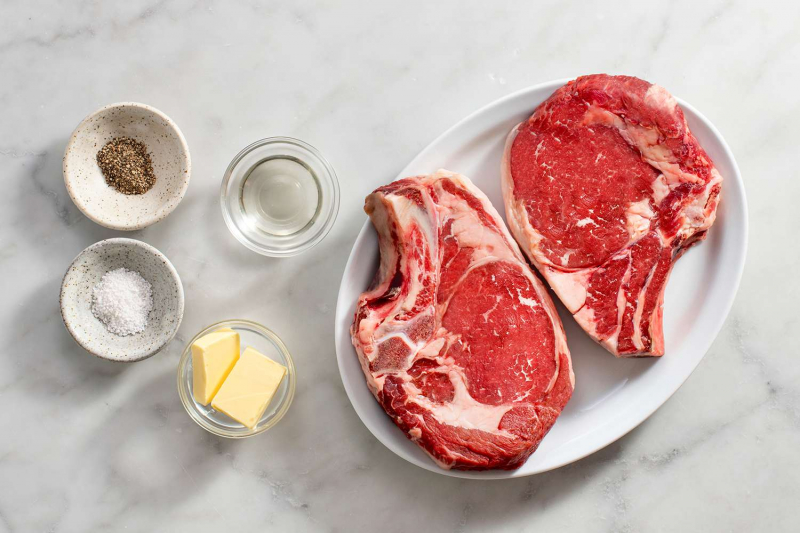
-
Let the steaks sit at room temperature for at least 20 and up to 40 minutes before cooking. Position a rack in the center of the oven and heat to 350 F.
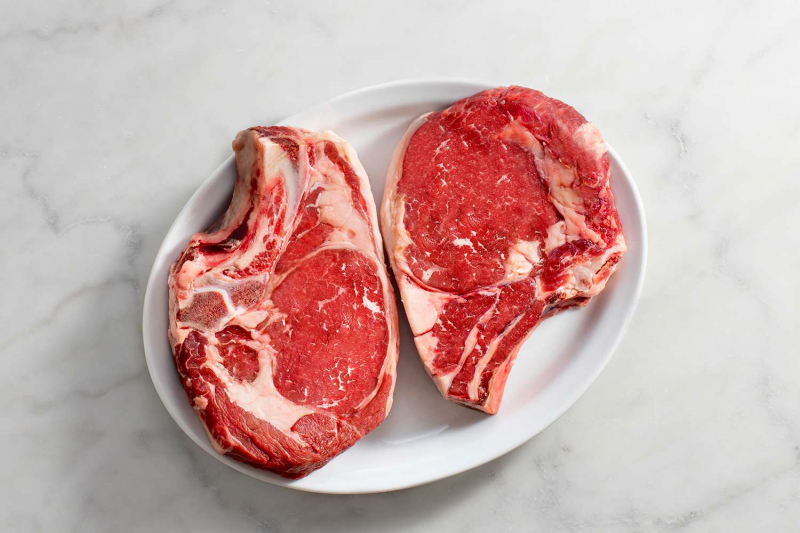
-
Right before cooking, sprinkle the steaks with salt and pepper.
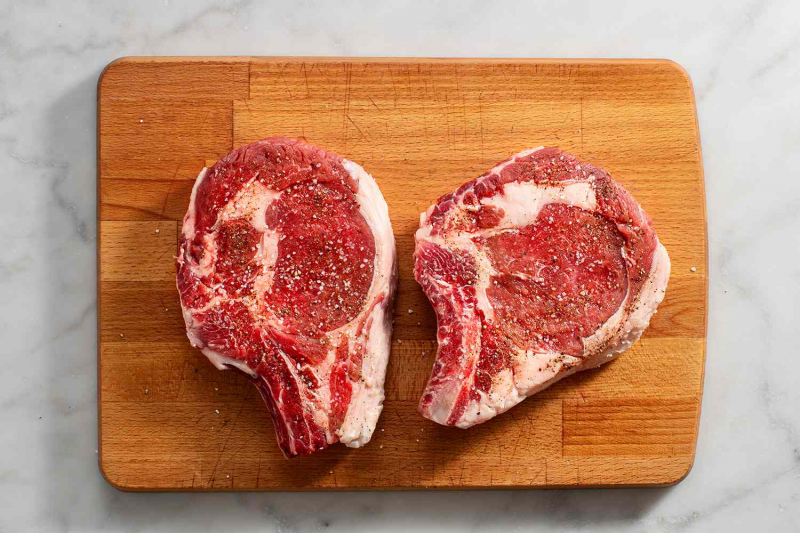
-
Add the oil to a cast-iron pan over medium-high heat and heat the pan until the oil shimmers.
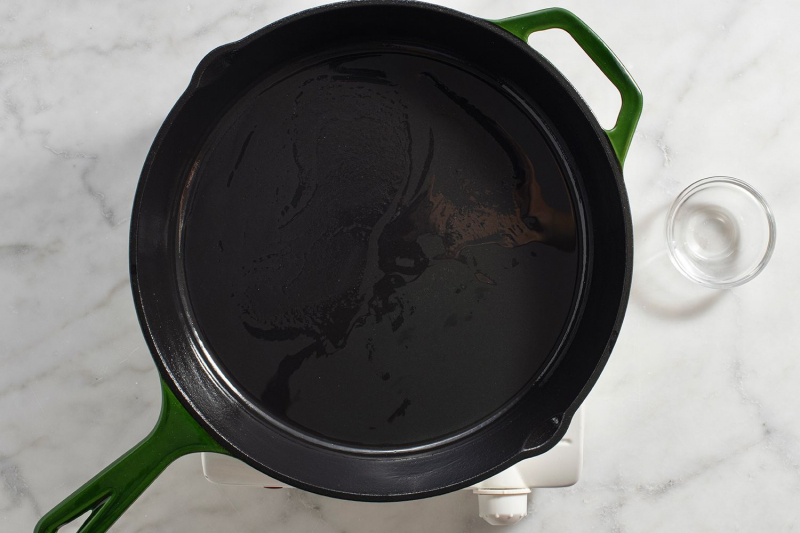
-
Place the steaks in the hot pan and sear one side for 3 to 4 minutes. Flip the steaks and sear the other side for 3 to 4 minutes.
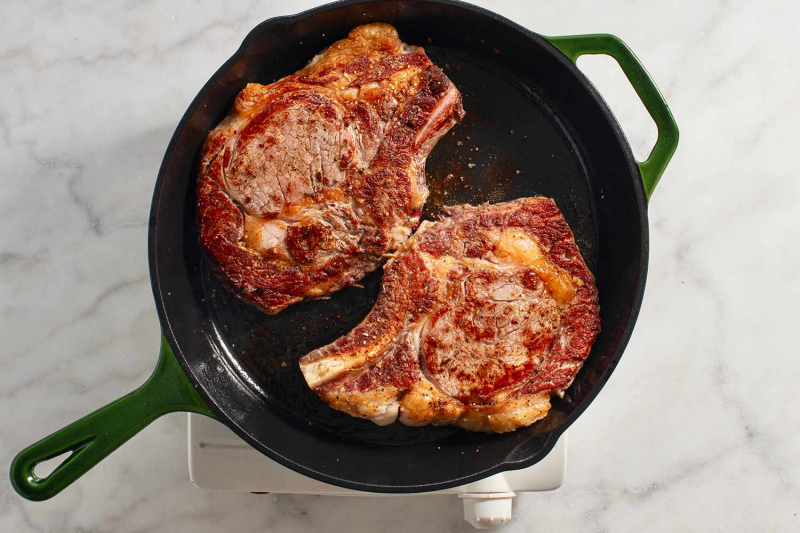
-
Using an instant-read thermometer, take the internal temperature of the steak. Depending on the thickness of the steak and your desired doneness level, the steaks may already be done at this point.
The internal temperature of the steak should be 110 F for rare, 120 F for medium-rare, 130 F for medium, 140 F for medium-well, and 150 F for well-done.
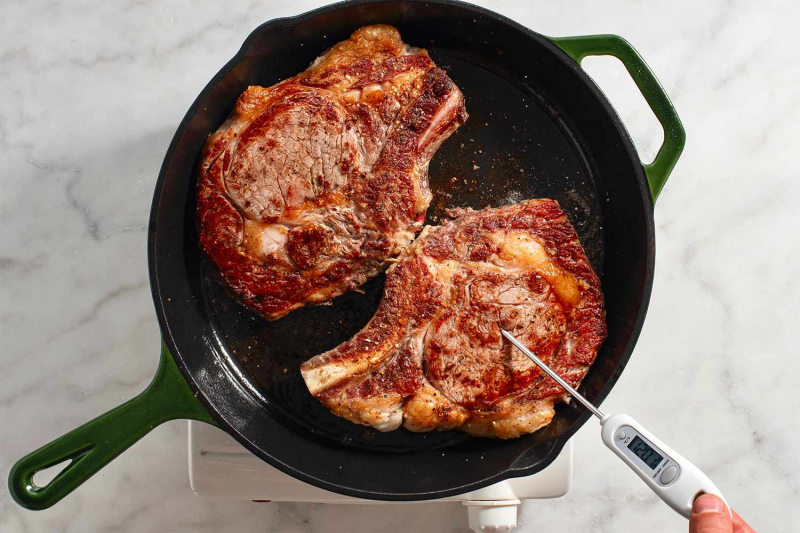
-
Place a tablespoon of butter on top of each steak, if desired. If the steaks are not done yet, move the pan to the oven and cook until they reach the desired doneness, 3 to 5 minutes more.
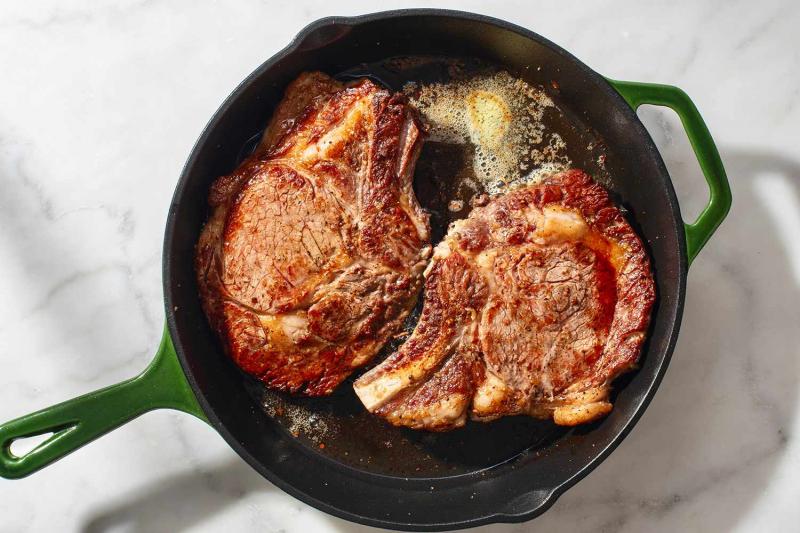
-
Transfer the steaks to a cutting board to rest at least 5 minutes before slicing and serving.
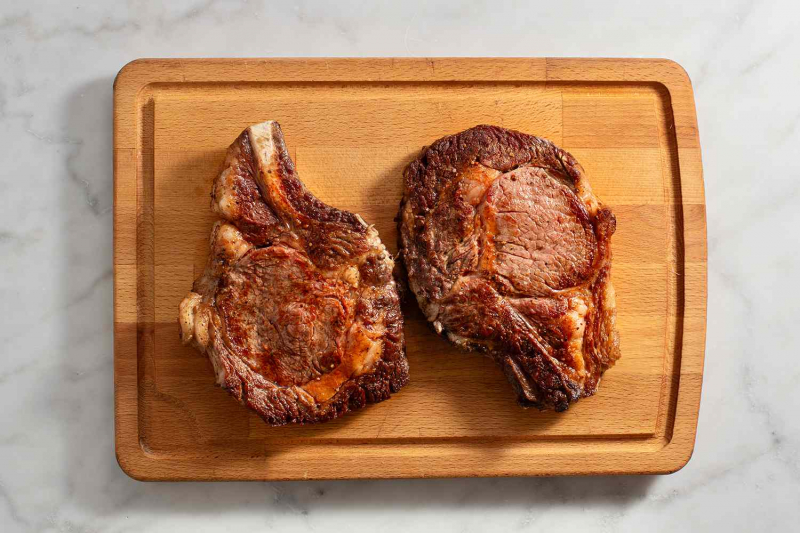
How to Store
Allow leftover steak to cool to room temperature before transferring it to an airtight container and storing it in the fridge. It will keep well for two to three days. Reheat it for a few minutes in a hot pan on the stovetop or enjoy it as a cold steak sandwich.
Recipe Variations
- You may use New York strip steaks instead of rib-eyes in this recipe.
- To concentrate the flavor of the meat and ensure it is seasoned inside and out, you can dry brine the steak for up to a day. Sprinkle the steak on both sides with the salt called for in the recipe and refrigerate it, uncovered, for at least two hours or up to a day before cooking.
- To baste the steak with flavorful butter, about 1 minute before the steak is done cooking on the stovetop add the butter called for in the recipe directly to the pan along with a few sprigs of thyme and a couple smashed garlic cloves. Carefully tilt the pan so the melted butter pools on the bottom edge and spoon it over the steaks repeatedly for 1 minute or so.
| Nutrition Facts | |
|---|---|
| Servings: 4 | |
| Amount per serving | |
| Calories | 492 |
| % Daily Value* | |
| Total Fat 36g | 46% |
| Saturated Fat 15g | 73% |
| Cholesterol 133mg | 44% |
| Sodium 492mg | 21% |
| Total Carbohydrate 0g | 0% |
| Dietary Fiber 0g | 0% |
| Total Sugars 0g | |
| Protein 42g | |
| Vitamin C 0mg | 0% |
| Calcium 22mg | 2% |
| Iron 4mg | 23% |
| Potassium 478mg | 10% |
| *The % Daily Value (DV) tells you how much a nutrient in a food serving contributes to a daily diet. 2,000 calories a day is used for general nutrition advice. | |
